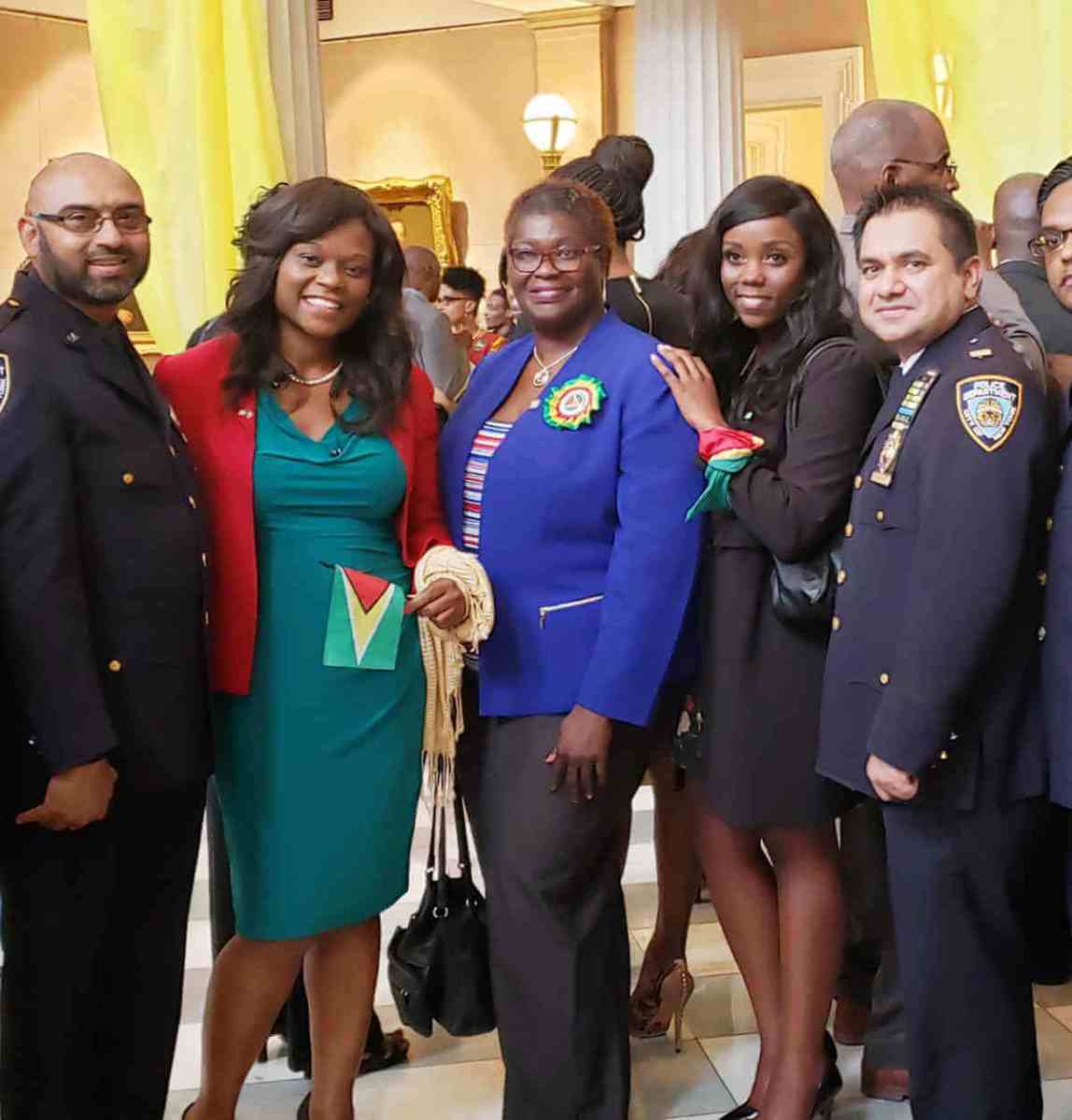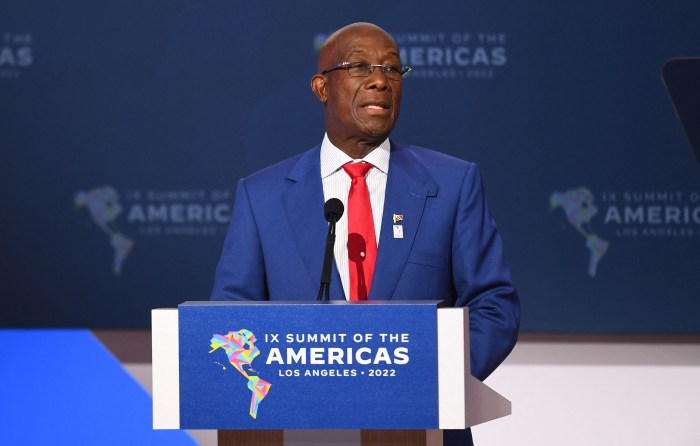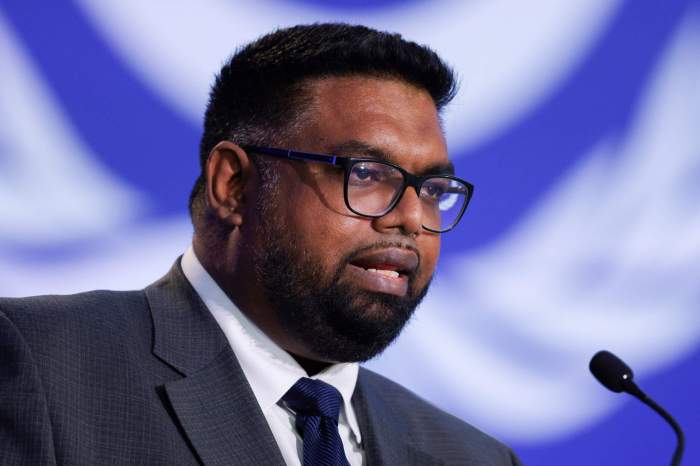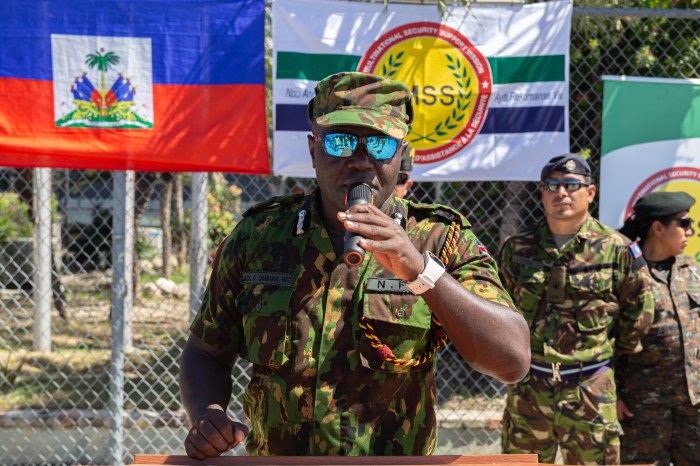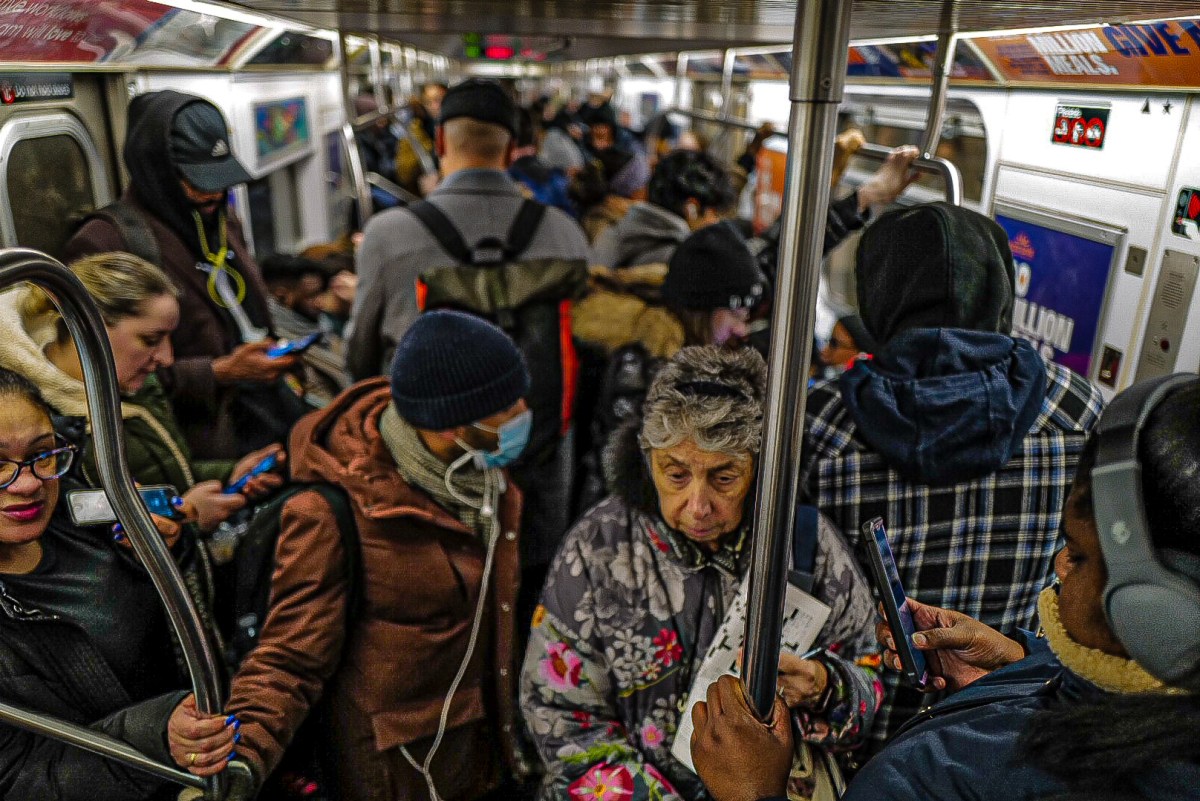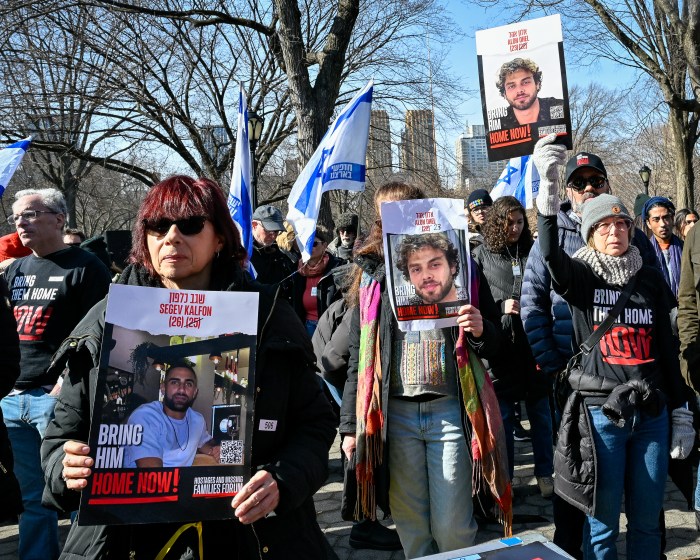Several Haitian-American legislators in New York have led outrage over a Guyanese publication critical of what it describes as the influx of Haitians migrating to the Caribbean Community (CARICOM) member state.
An unauthored article published in the Guyana Times on Friday, under the headline, “Influx of Haitians into Guyana raises major health concerns,” has drawn the wrath of not only Haitian-Americans but of other Caribbean-American legislators and leaders.
The article states that “Haiti is among the leading countries for its high statistics on Human Immunodeficiency Virus (HIV) and the cholera epidemic, which has brewed serious health concerns after a large influx of its citizens arrived in Guyana in recent times.”
It also adds that “over the past week, reports suggested that masses of persons have entered the country through the Cheddi Jagan International Airport (CJIA), where provisions were made for them to acquire accommodation at hotels and other boarding houses predominantly within Georgetown. This was backed by photos showing masses of Haitians leaving the airport facilities in buses with their children and spouses.
“Through interaction with Guyanese, it is expected that any communicable and non-communicable diseases will spread, raising questions as to the stability of the health sector to cushion increased cases of these illnesses,” the article continues. “Moreover, an epidemic could prove deadly for the small population.”
But incensed Haitian and Caribbean-American legislators and leaders told Caribbean Life on Tuesday that the article only perpetuates hatred and division within the communities, instead of unity.
They have, therefore, called on the Guyana Times to retract what they characterized as “misinformation against Haitian immigrants to Guyana.”
“We must take a stance in preaching as well as practicing unity and tolerance throughout the world,” said New York State Assemblymember Rodneyse Bichotte, the daughter of Haitian immigrants, who represents the 42nd Assembly District in Brooklyn. “As an elected official of Haitian descent and representing one of the most diverse and possibly largest Caribbean immigrant communities in New York City, I believe we have an obligation to fight discrimination and racism wherever it rears its ugly head.
“As a member of CARICOM, Haitians have the right to freely emigrate to other CARICOM countries. Distinguished groups and organizations from the United Nations to CARICOM have spoken of the need to travel freely for the cause of economic growth and community unity. Therefore, as sister countries of CARICOM, Guyana and Haiti are expected to honor the same agreement,” Bichotte added. “The outdated charges of HIV / AIDS and cholera is ludicrous, and it is incumbent upon any media outlet to get their facts correct before publishing false statements; hence, this strident call on the Guyana Times to become aware of the 21st century science, stop the ignorant and racist posturing, stop publishing false stories.
“Failure to heed this call definitely puts the paper in the ranks of Trump and other ‘purveyors’ of hate,” the assemblywoman continued. “We are demanding that Guyana Times issue an apology with a retraction of the ridiculous, divisive and false statements made against the people of Haiti.”
Newly-elected Haitian American New York City Councilmember Farah Louis, also told Caribbean Life that “the derogatory statements published in the Guyana Times are eerily similar to the anti-immigrant rhetoric of the Trump Administration and the stigmatization of Haitians in the 1980s as carriers of AIDS disease.”
“We have seen the detrimental effect of xenophobia as it relates to Haitians in the US and Dominican Republic,” said Louis, the daughter of Haitian immigrants, who represents the 45th Council District in Brooklyn. “We cannot allow the disparaging words of one or more define who we are as a people or diminish our contributions throughout history.
“The migration of people should never be viewed as a threat to society but an opportunity for cultural exchange and global dialogue,” she added, also demanding an apology and retraction from the Guyana Times “to ensure that we do not perpetuate the hate and discrimination that has divided the (Caribbean) Diaspora.”
Kimberly Jean Pierre, a Haitian American New York State Assemblymember, who represents the 11th District in Suffolk County, Long Island, said the allegations about the Haitian migrants were “unfortunate,” stating that the majority of Haitians are “merely seeking better lives for their families.”
“It is my hope that the Guyanese and Haitian governments can work in conjunction to ensure that those traveling through Guyana are able to migrate safely and that any bad actors, especially human traffickers, are prosecuted to the fullest extent of the law,” she said.
Alicia Hyndman, a Caribbean-American New York State Assemblymember, who represents the 29th Assembly District in Queens, said she was certain that the Guyanese Diaspora “fully understands the plight of immigrants struggling for a better life.”
“It is irresponsible to spread this type of fear among Guyanese people regarding the health of Haitians,” she said.
Another Caribbean-American legislator, Brian Benjamin, who represents the 30th District in Harlem in the New York Senate, said it was “completely unacceptable to stereotype Haitians in this way.”
“Both Guyana and Haiti are members of the Caribbean Community,” he said. “And so, we must help to lift each other up, as opposed to tearing each other down with false propaganda.”
Mark Benschop, a Guyanese radio personality, said on Tuesday that “the obviously racist and despicable article by the Guyana Times, a newspaper that is widely known as a pro-opposition organ, describing Haitians arriving in Guyana, as health risks, should be condemned by everyone.”
“I call on the Private Sector Commission, the opposition leader, the PPP’s presidential candidate and other bigots to immediately withdraw their insensitive utterances toward our CARICOM brothers and sisters,” he said.
“Haitians should be welcomed to Guyana without having their human rights being violated, and should be respected just as all other nationalities are, including those from India, Bangladesh, Venezuela, Cuba and other countries,” Benschop added.
Guyanese in Brooklyn have also expressed outrage over the publication.
The Rev. Al Cockfield, the Guyanese-born pastor of God’s Battalion of Prayer, a church on Linden Boulevard in Brooklyn, said he was “deeply disappointed that the Guyana Times would publish an article that spreads fearful and hateful rhetoric about the Haitian community, deflecting from Guyanese views of unity and inclusion.”
“Creating a single story about an entire country or population is extremely dangerous and plants seeds of prejudice,” he said. “This article is divisive and needs to be pulled.”
Guyanese James Richmond, of the Greater New York Conference, Seventh Day Adventist, said it was “certainly an indictment of the ugly practice of racism by those who are using the lawful migration of Haitian citizens as a political pawn and as an exercise of their hate and bigotry against people of African descent.”
“It is a crying shame that, instead of fostering unity, a newspaper like the Guyana Times, can only stoop to gutter journalism,” he said. “There is no campaign against Cubans, Indians, Chinese and other nationalities, as they migrate to, or using, Guyana as a transit point.”
The Brooklyn-based Caribbean Guyana Institute for Democracy (CGID) said in a statement on Tuesday that it was also “unfortunate that the bigotry being spewed by a few racists has stained Guyana’s image internationally.”
“Haitians are nationals of a sister CARICOM state,” said the group’s Guyanese-born president Rickford Burke, an international law consultant. “They are entitled to free movement within the CARICOM region in accordance with the revised Treaty of Chaguaramas as well the CARICOM Single Market and Economy (CSME).
“They, therefore, have a right to visit Guyana, seek employment, establish businesses and pursue a better life in Guyana, just like Guyanese have done in other CARICOM countries for decades,” he added.
The Guyana Times’s article said that “apart from a health crisis, the socioeconomic impact has also raised eyebrows, given the fact that Guyana is now a haven for Venezuelan migrants.”
It said that, in March, “the coalition Government had sought to extend the time that Haitians spend in Guyana to six months.”
“This change in the immigration policy came on the heels of the unaccountability of over 3000 Haitians in Guyana,” the Times said. “Persons were already complaining about Haitians being employed at hospitals and in other sectors but being unable to speak proper English, while thousands of Guyanese have lost their jobs.”
The Guyana Times said figures presented to the National Assembly had shown that Cubans accounted for the largest influx of foreign nationals, followed by Haitians and then Venezuelans, after which were Brazilians, Indians, Bangladeshis, Dominicans [from The Dominican Republic] and Chinese.
“It was noted that as of April, 2018, a total of 1,238 Haitians arrived in Guyana, but only 85 left the country,” the article said. “In 2017, 3,515 Haitian nationals entered Guyana and 291 left; while, the year before, out of 722 Haitians who came here, only 451 were on record as leaving.
“There were 770 Haitian nationals who arrived in 2015, 227 in 2014 and 188 in 2013, but only 136, 113 and 99 left the country, respectively,” the article added.


